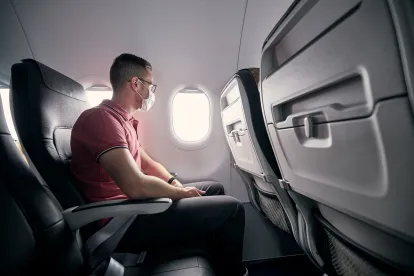As the COVID-19 pandemic continues to evolve daily, the Centers for Disease Control and Prevention (CDC) has updated its guidelines on what is required or recommended for travelers after their arrival in the United States. These new changes join the December 2021 requirements about travel to the United States.
Reiterating: Before Boarding
Non-U.S. individuals (those who are neither U.S. citizens, U.S. nationals, nor legal permanent residents) are required to show two things:
-
(1) Proof of being fully vaccinated against COVID-19 (only limited exceptions apply); AND
-
(2) Proof of a negative COVID-19 test result taken no more than one day before travel or documentation of recovery from COVID-19 within the past 90 days.
U.S. individuals, on the other hand, are only required to either show a negative COVID-19 test result taken no more than one day before travel or provide documentation of recovery from COVID-19 within the past 90 days. Because there is no vaccination requirement, U.S. individuals may also be required to provide contact information to airlines before boarding to facilitate contact tracing if it becomes necessary.
New: After Arrival
The new post-arrival recommendations and requirements also vary based upon citizenship status.
Non-U.S. individuals who were allowed to fly to the U.S. based on an exception without being fully vaccinated may be required to make certain attestations:
-
Agree to be tested within 3-5 days after arrival, unless they have documentation of recovery from COVID-19 within the past 90 days.
-
Agree to stay home or in a hotel room and self-quarantine for a full 7 days, even if they have a negative test, unless they have documentation of recovery from COVID-19 within the past 90 days.
-
If the COVID-19 test comes back positive or if COVID-19 symptoms develop, the non-U.S. individual should isolate.
-
Those who intend to remain in the United States for 60 days or longer must become fully vaccinated within 60 days of arrival or as soon as medically appropriate, absent a medical contraindication or if the individual is too young to be vaccinated.
Non-U.S. individuals who are fully vaccinated but not “up to date,” i.e., have not received a booster, should stay home and self-quarantine for full 5 days after travel.
-
CDC recommends testing within 3-5 days after travel, self-monitoring for symptoms, and isolating and testing if symptoms develop
U.S. individuals should do the following upon arrival:
If not vaccinated or not up to date with COVID-19 vaccines:
-
Stay home and self-quarantine for a full 5 days after travel
Even U.S. individuals who are vaccinated should:
-
Get tested within 3-5 days after travel
-
Self-monitor for symptoms and isolate if symptoms develop
There is a distinction between isolation and quarantining, but that distinction does not change the required behavior.
-
Isolation separates sick people with a contagious disease from people who are not sick.
-
Quarantine separates and restricts the movement of people who were exposed to a contagious disease to see if they become sick.




 />i
/>i


